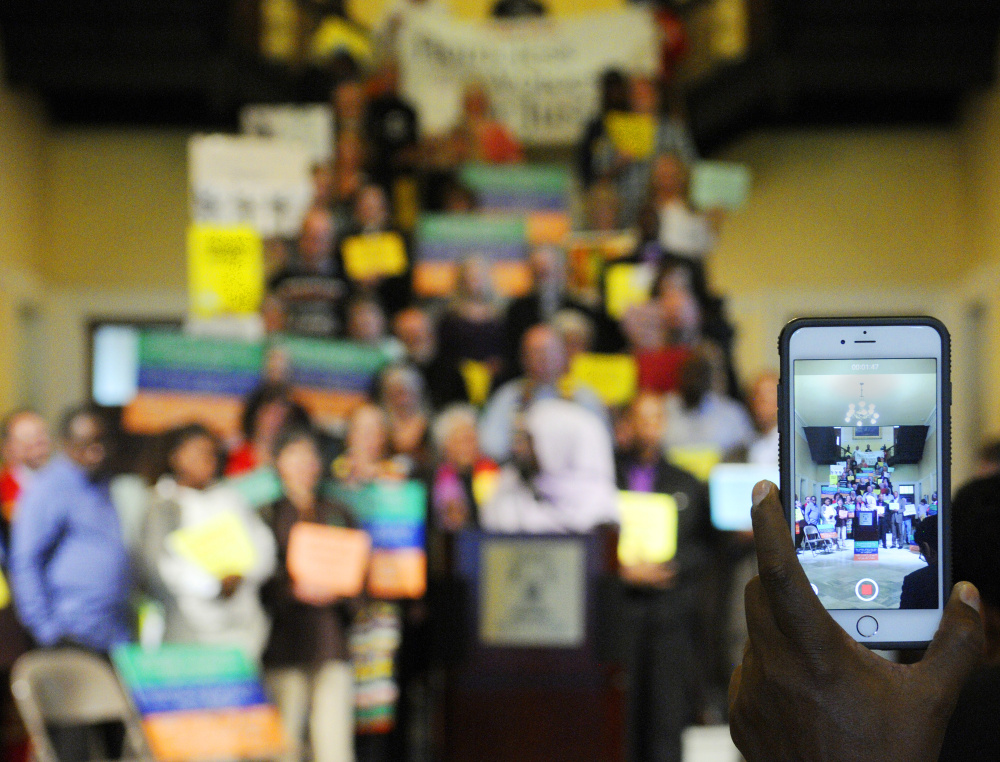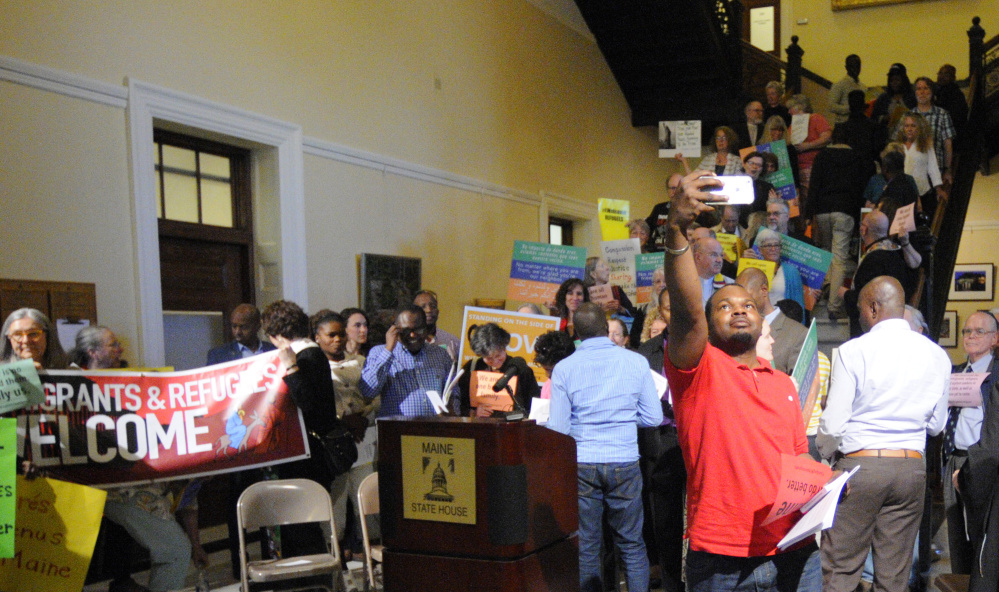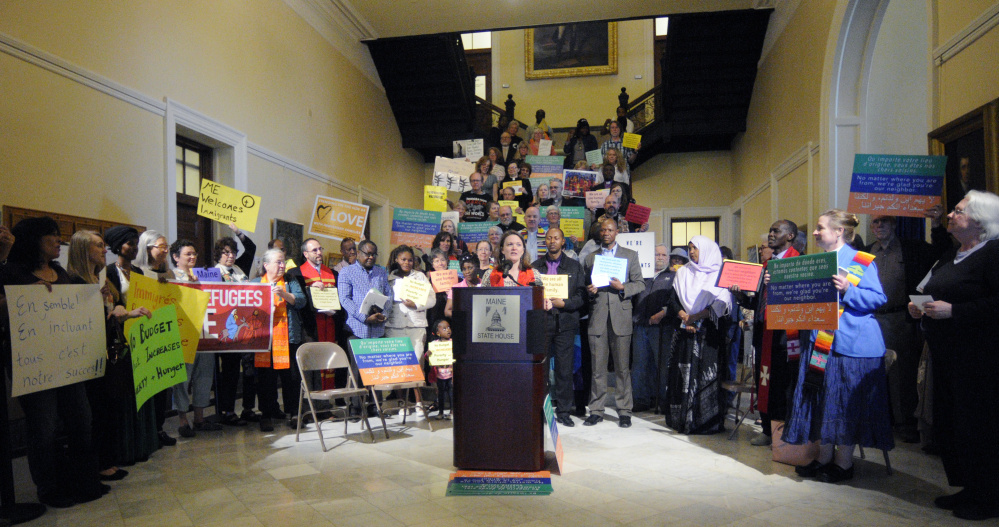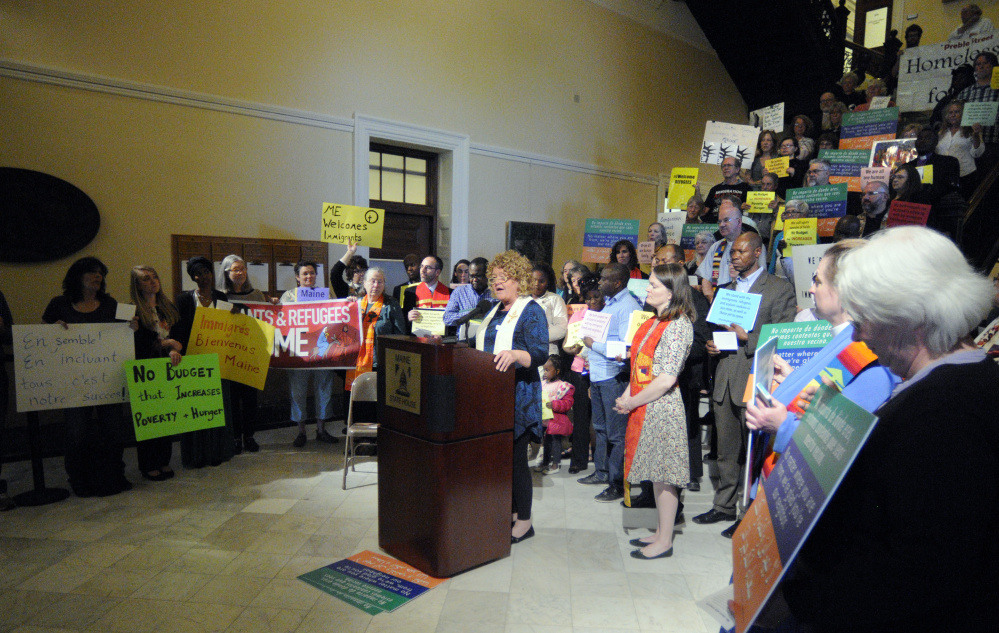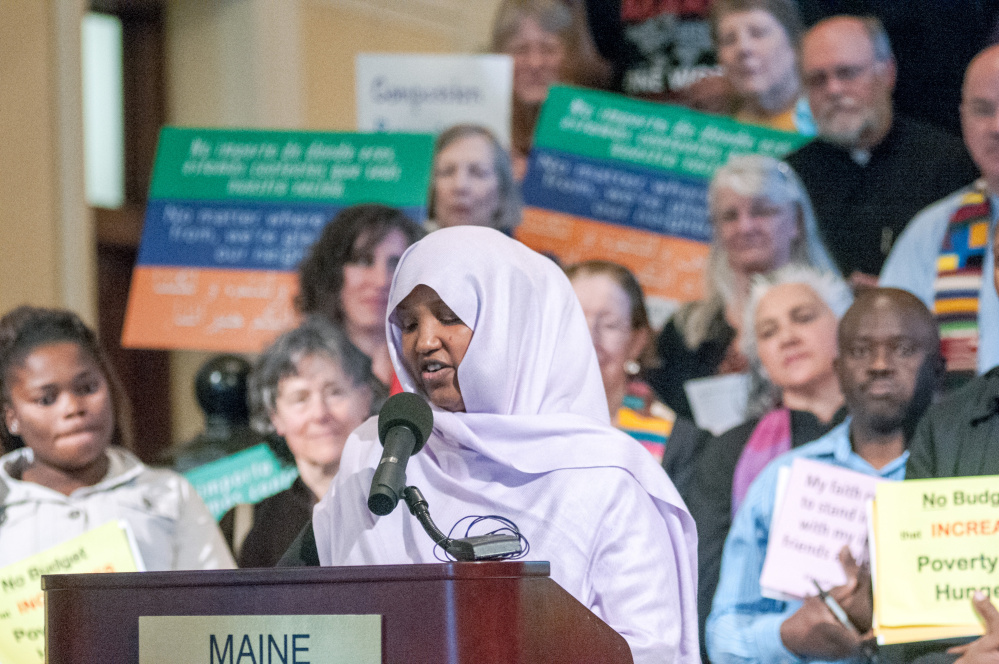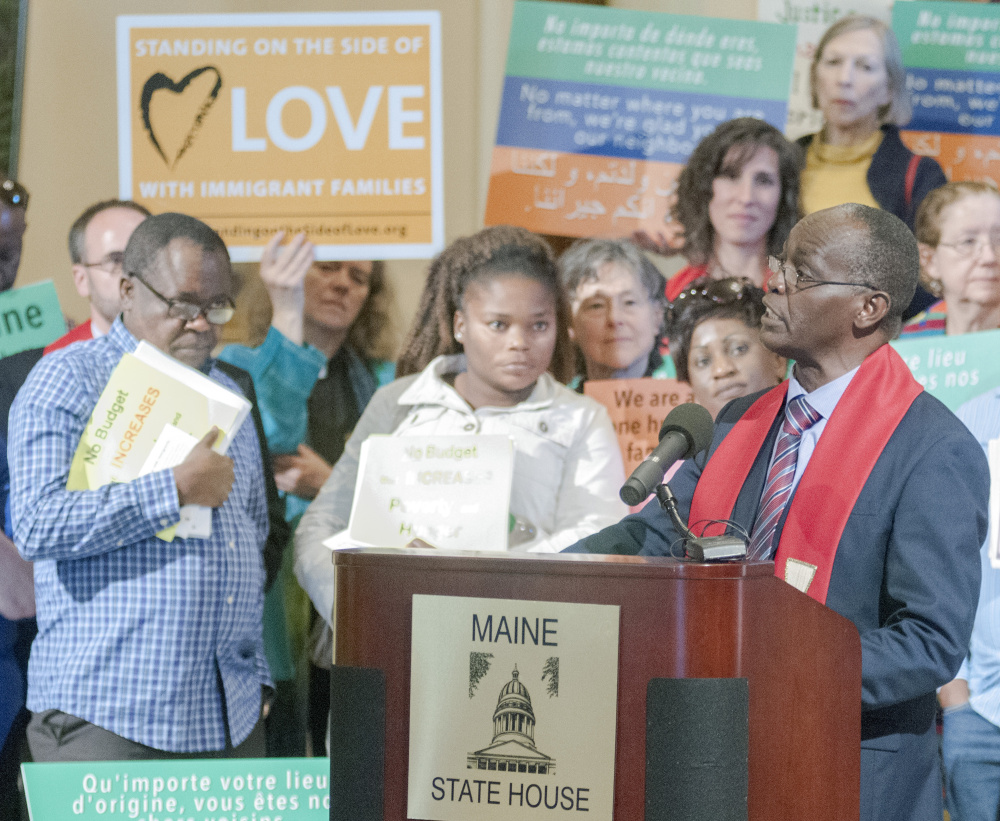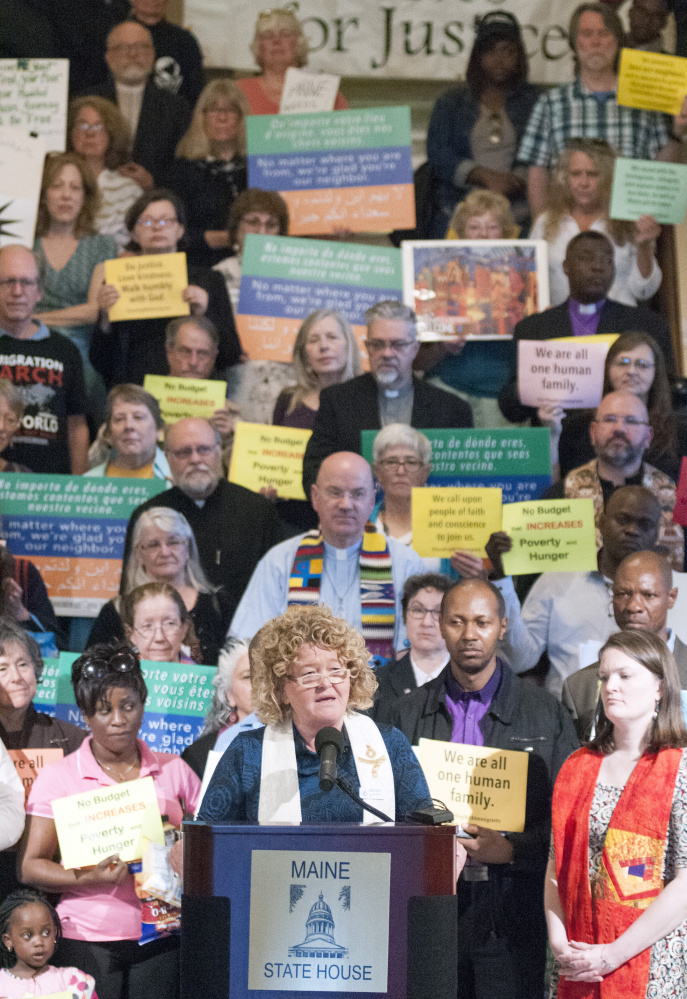AUGUSTA — Members of the clergy and people of faith from across Maine say they are standing with refugees, immigrants and asylum-seekers and against the arrest and detainment and deportation of undocumented immigrants.
At a rally that drew more than 50 people, many clad in the symbols of their faith, to the Hall of Flags at the State House, speakers urged their colleagues to raise their voices in support of compassionate and just policies to help people who have come to the United States to make a new life for themselves and their families.
As of Wednesday, 198 religious leaders and clergy from across Maine had signed the statement of support that reads:
“As faith leaders of Maine, we affirm the work, dignity and human rights of all persons, regardless of their nationality, religion, or legal status. We stand with the immigrants, refugees, and asylum seekers in our state, as well as those yet to come. We commit to love our neighbors and advocate for policies that protect the most vulnerable among us. We oppose the arrest, detainment, and deportation of undocumented immigrants. We call on people of faith and conscience to join us.”
Among the speakers who talked about the faith tradition of welcoming strangers, the Rev. Nathan Ndayiziga, a United Methodist minister and immigrant from Burundi, said, “I would like to let you know that Maine has given us a warm welcome and we do appreciate all the services you provided to us. We were embraced by the great love you did show to all new Mainers though we were strangers to you.”
Ndayiziga said he hopes the United States of America and the state of Maine could extend its mercy to bring asylum seekers with their families here without delay and to fund programs to support immigrants, refugees and asylum-seekers as they work to become members of their new communities.
The Rev. Allen Ewing-Merrill, of HopeGateWay United Methodist Church in Portland, told his colleagues it’s nice to sign a statement in support of refugees and immigrants, because it makes people feel good about themselves. But he urged them to do more.
“We need to talk about where the rubber meets the road,” he said. “One of the ways that rubber meets the road is by assisting immigrants when they arrive.”
It’s one thing to say they are welcome, but it’s quite another to leave them to struggle every day to find a place to live, food and medical care and make their way in a place where they often don’t speak the language or know the customs.
One of the ways that the rubber meets the road is preserving anti-poverty programs like Temporary Assistance to Needy Families, general assistance, Supplemental Security Income and other programs that sustain life for immigrants, he said, and those programs facing steep budget cuts.
The debates about funding the programs have nothing to do with money, he said; Maine has unspent TANF funds, and that’s not OK.
They have to do with xenophobia, the fear of foreigners.
And while immigration can support economic development, the concern of the clergy is humanitarian.
Ewing-Merrill said it’s not true that if the state neglects its responsibility that nonprofit agencies and faith communities are ready to step up to pick up the slack.
“We’re doing as much as we can and we are glad to help because it’s our call as people of faith,” he said. “But it’s the responsibility of the state to provide for the common good. The common good is everyone.”
Kathy Kilrain Del Rio, who works with the Maine Women’s Lobby, watched the rally Wednesday.
“Right now the Legislature is deciding what it will do with the state budget, and the governor has proposed significant cuts to programs that help immigrants and all people in Maine,” Kilrain Del Rio said. “It’s important for the clergy to speak up because budgets are as much about our choices and moral values as they are about money. It’s important for voices of faith to speak up about moral issues, and this certainly is one.”
Jessica Lowell — 621-5632
Twitter: @JLowellKJ
Send questions/comments to the editors.

